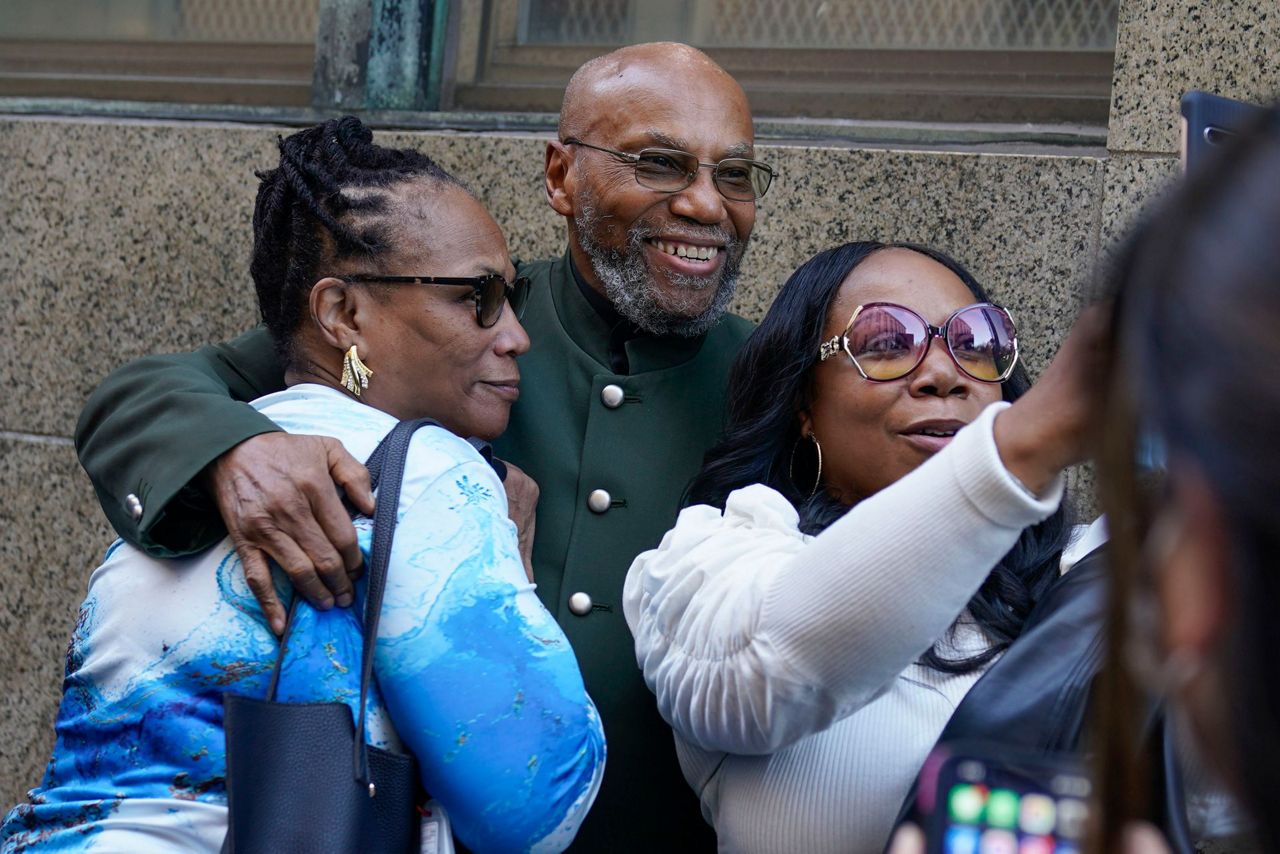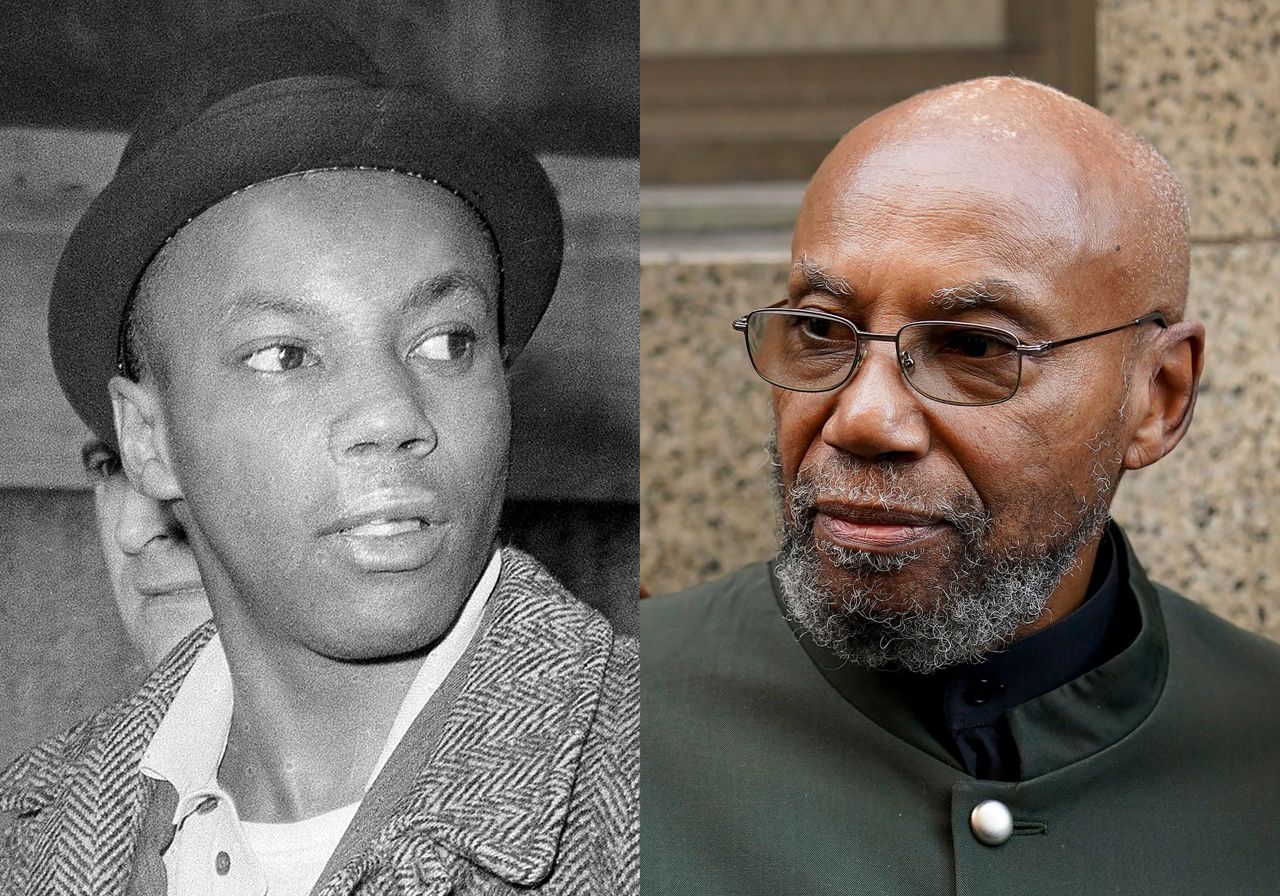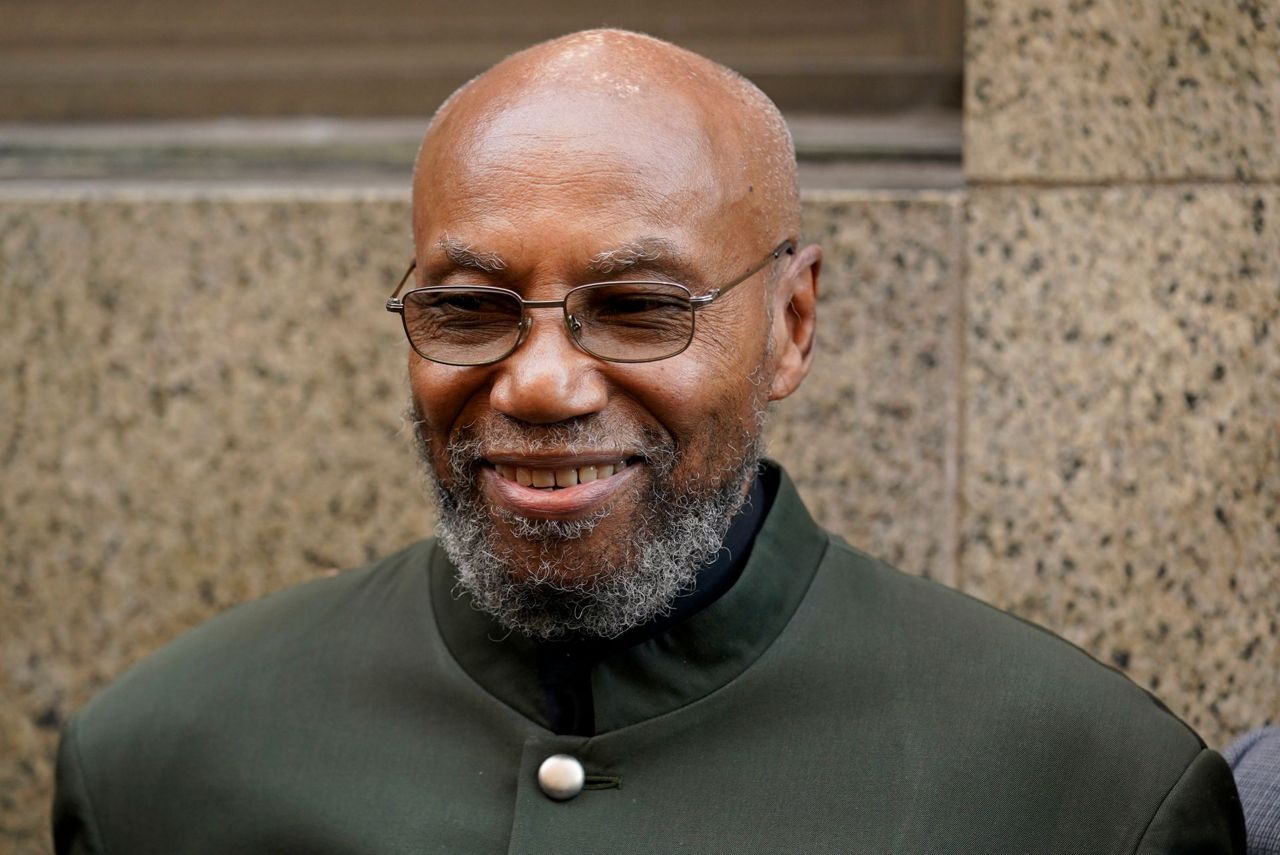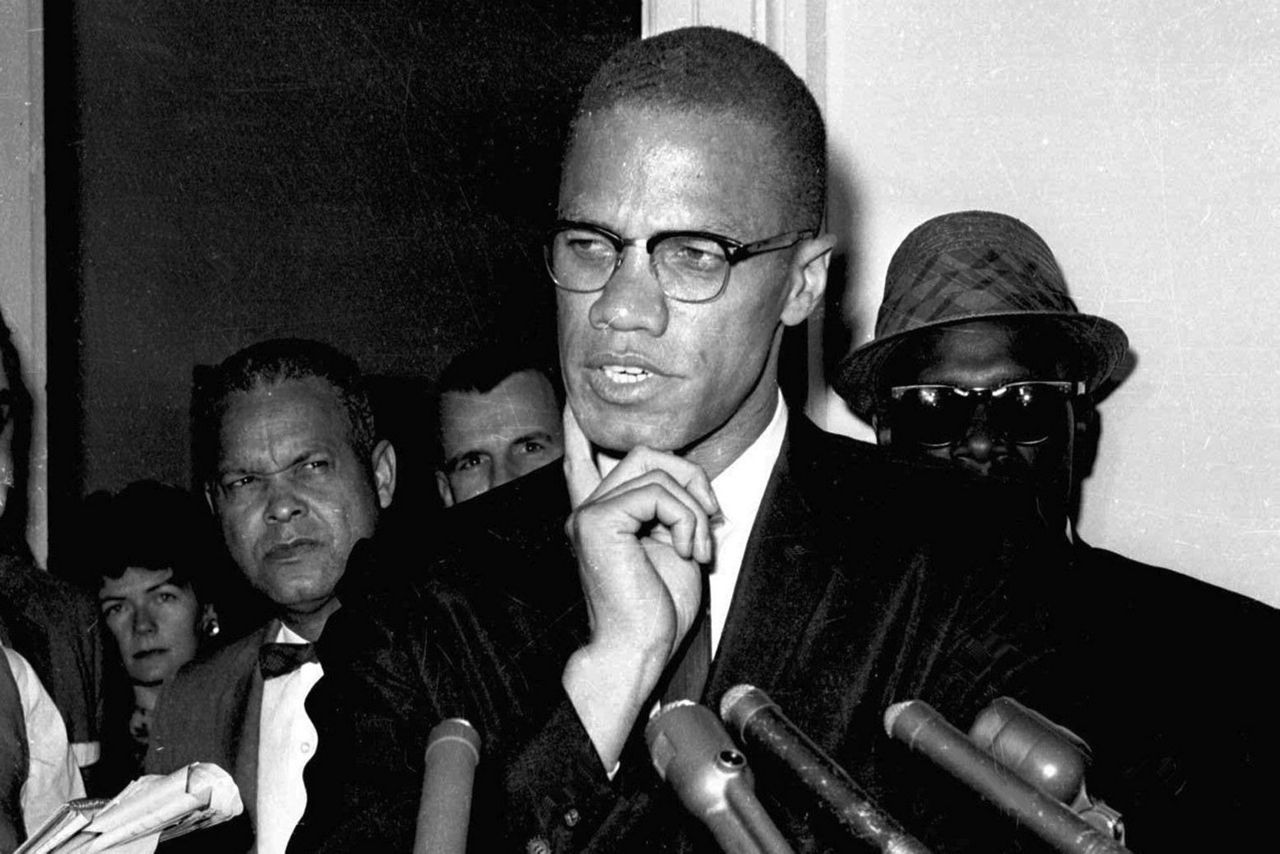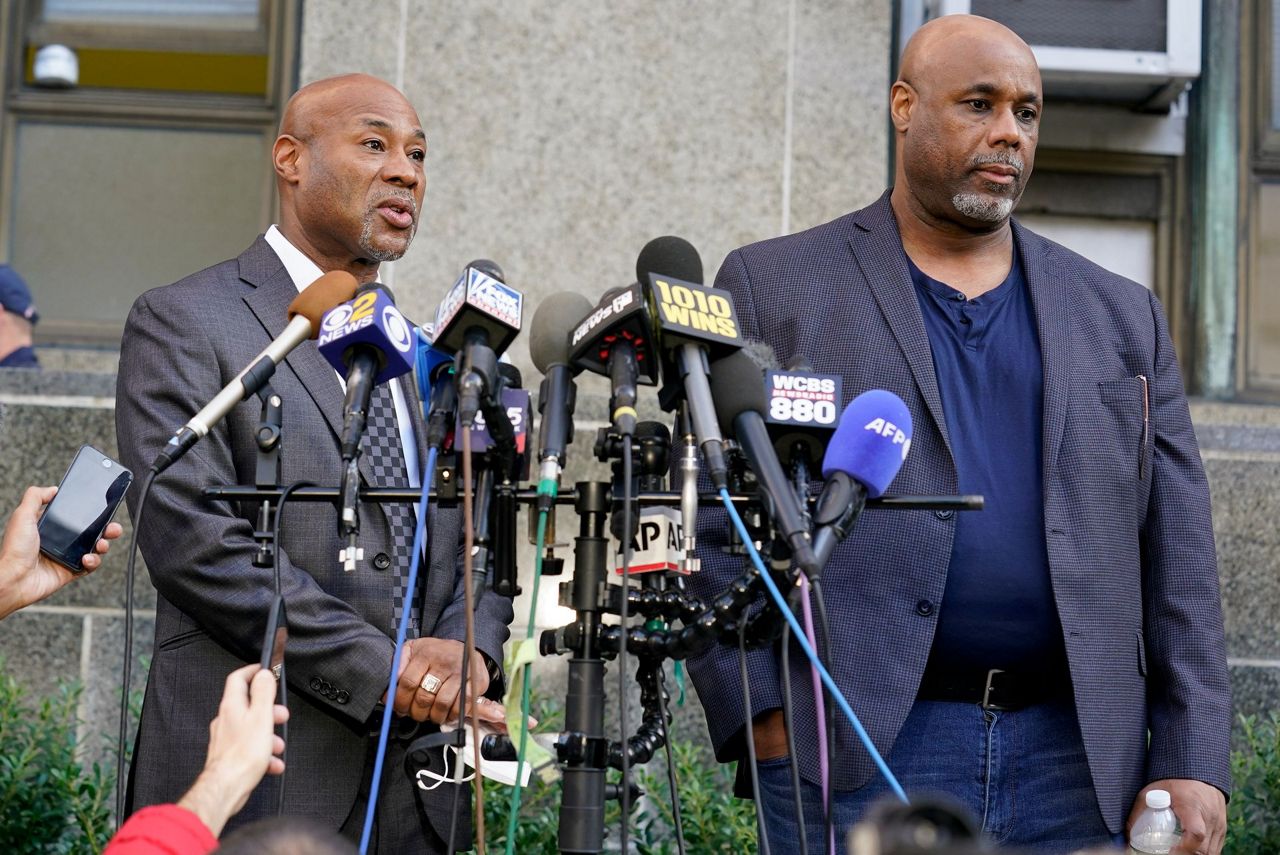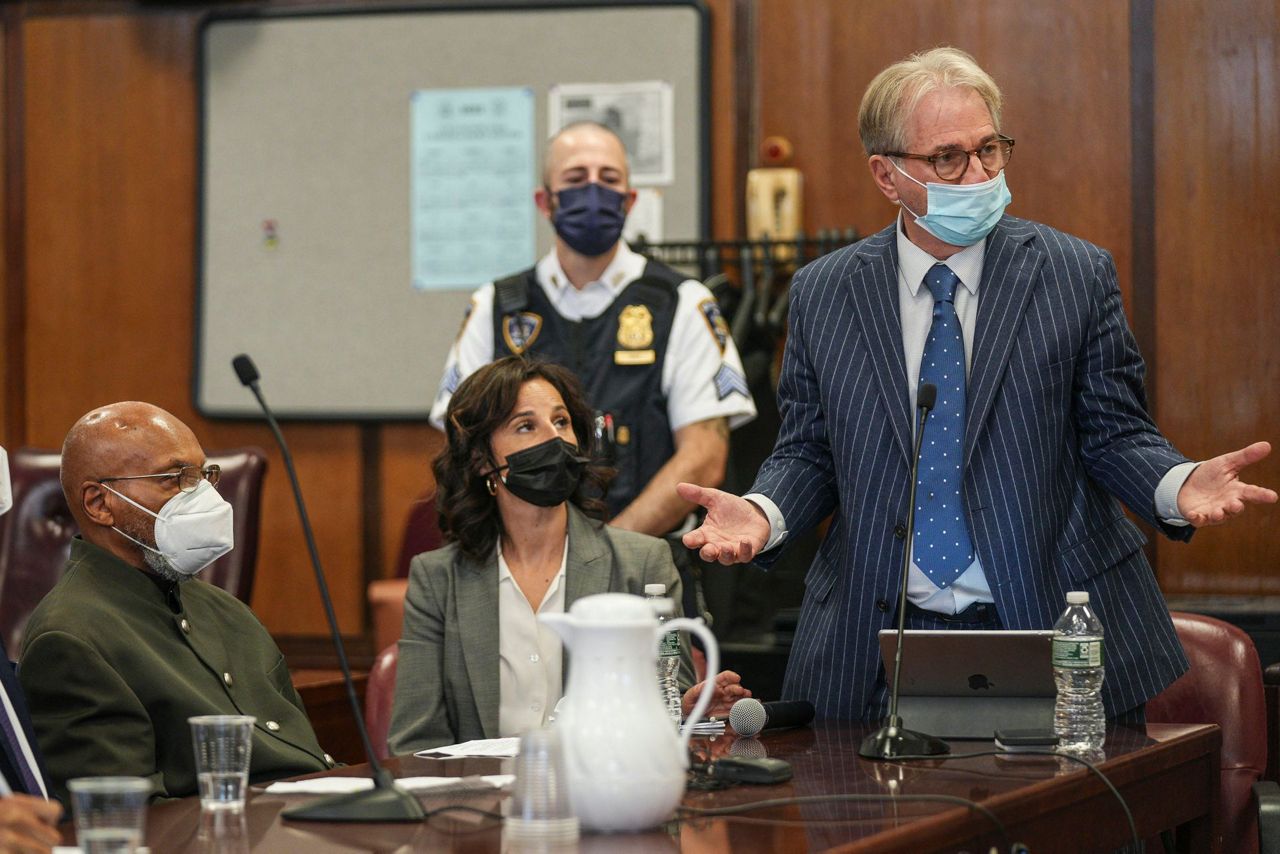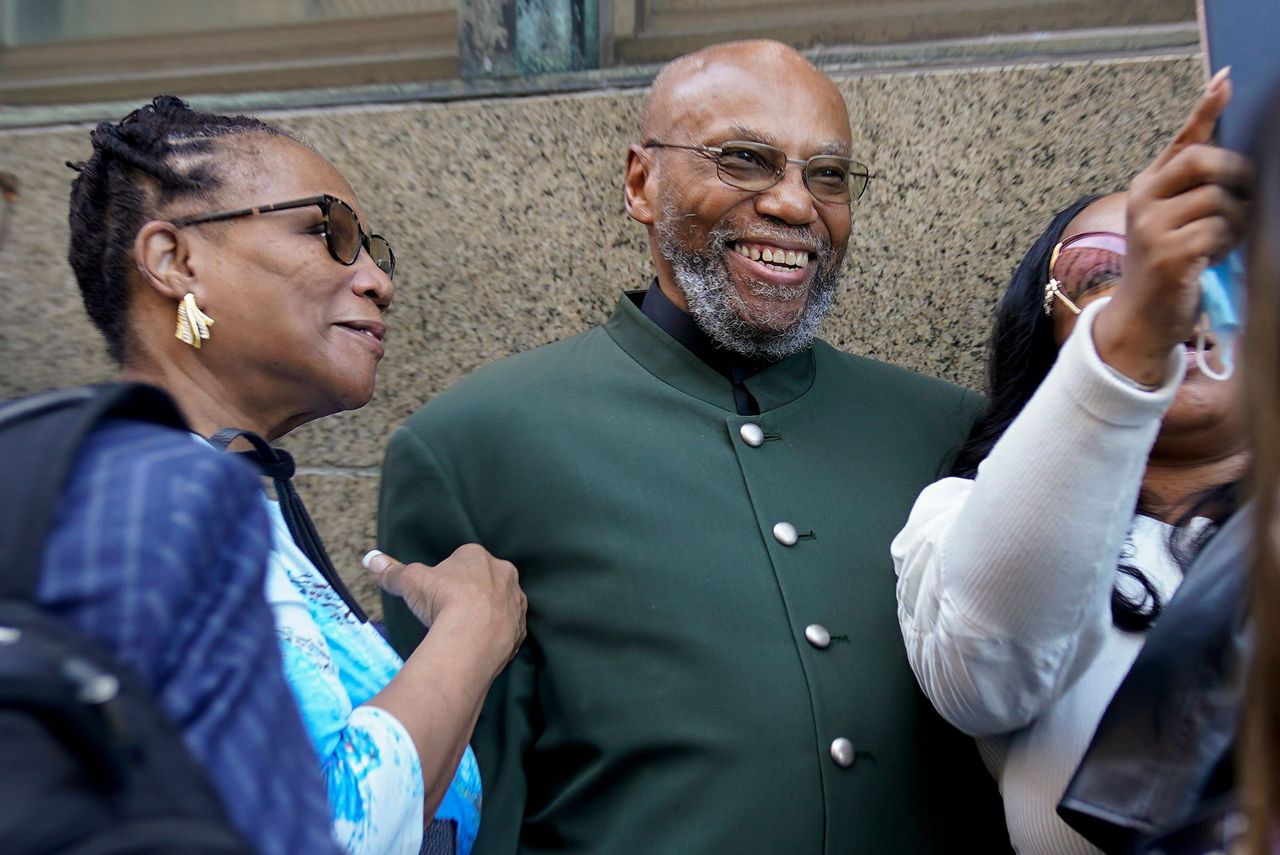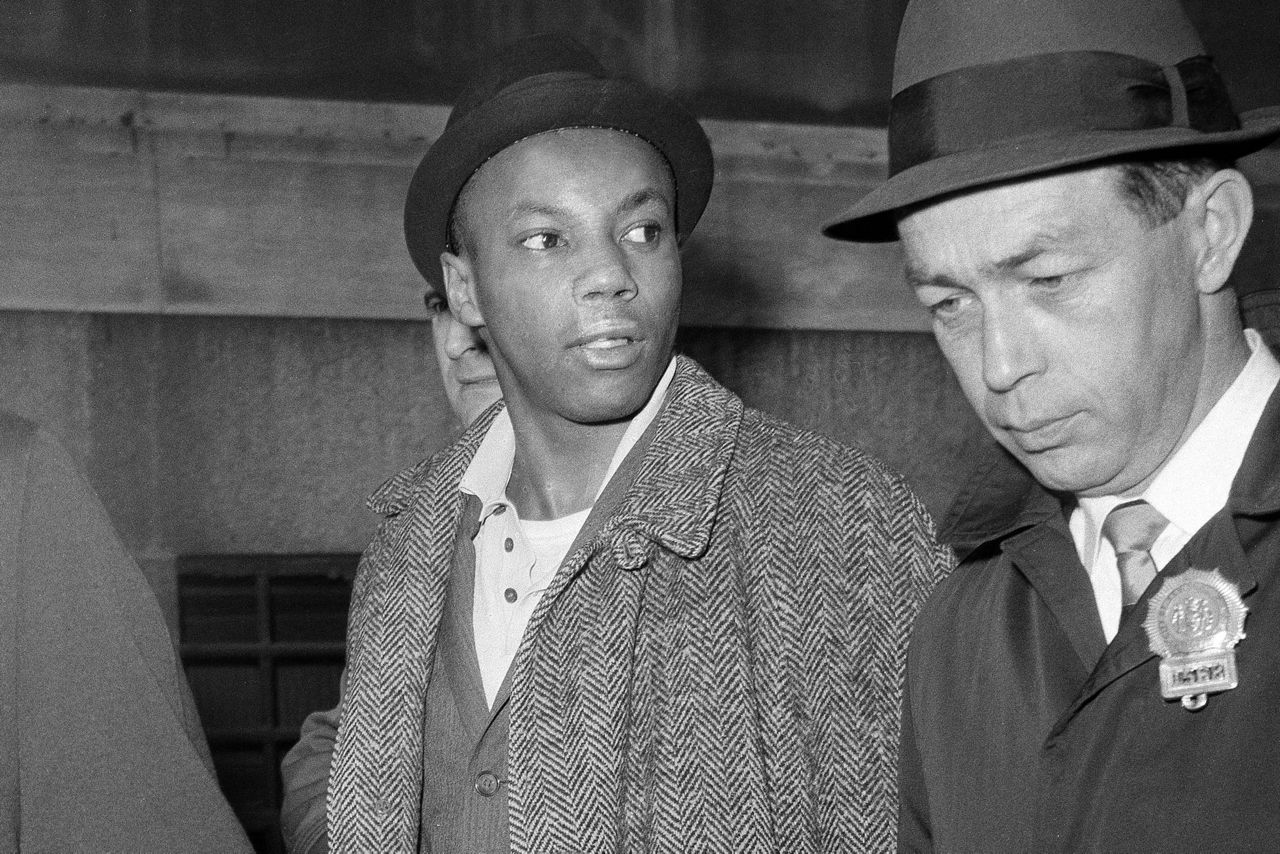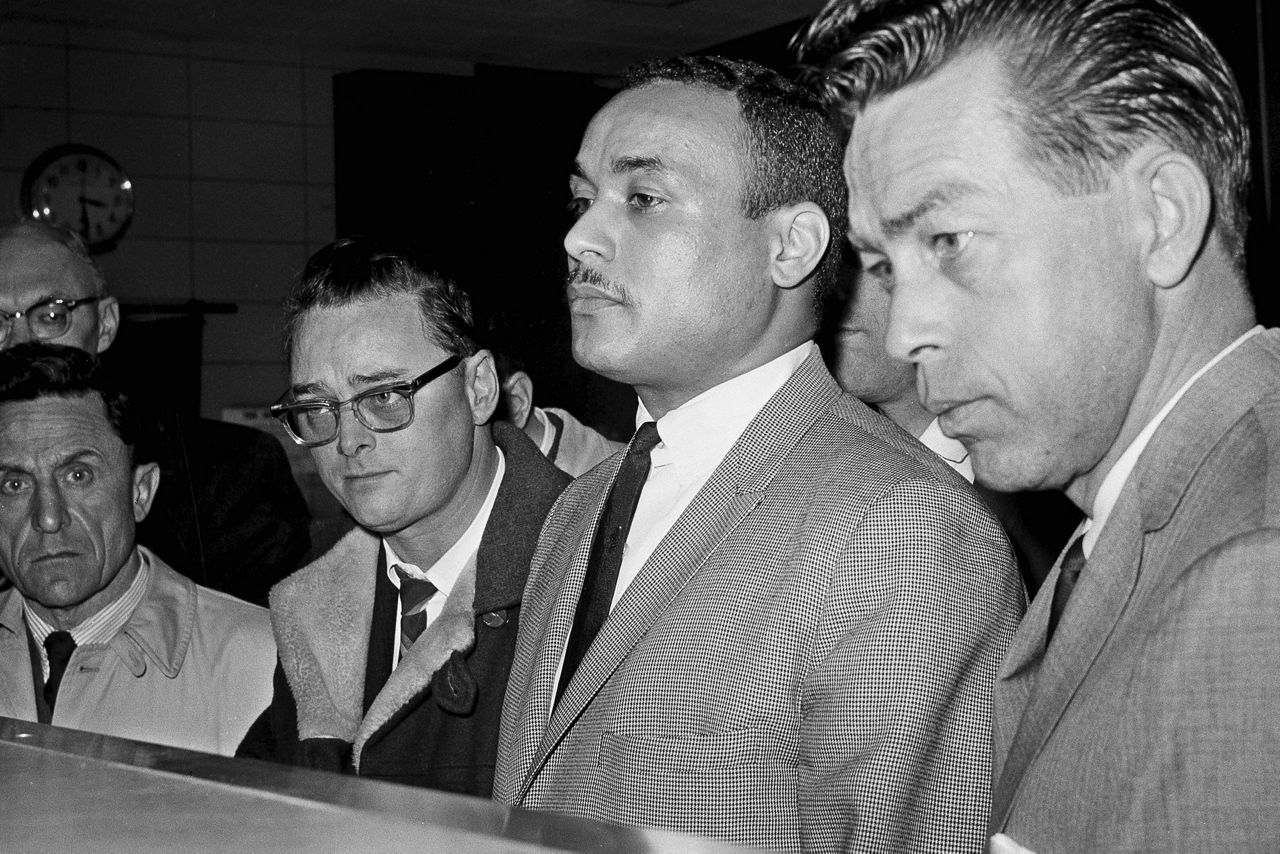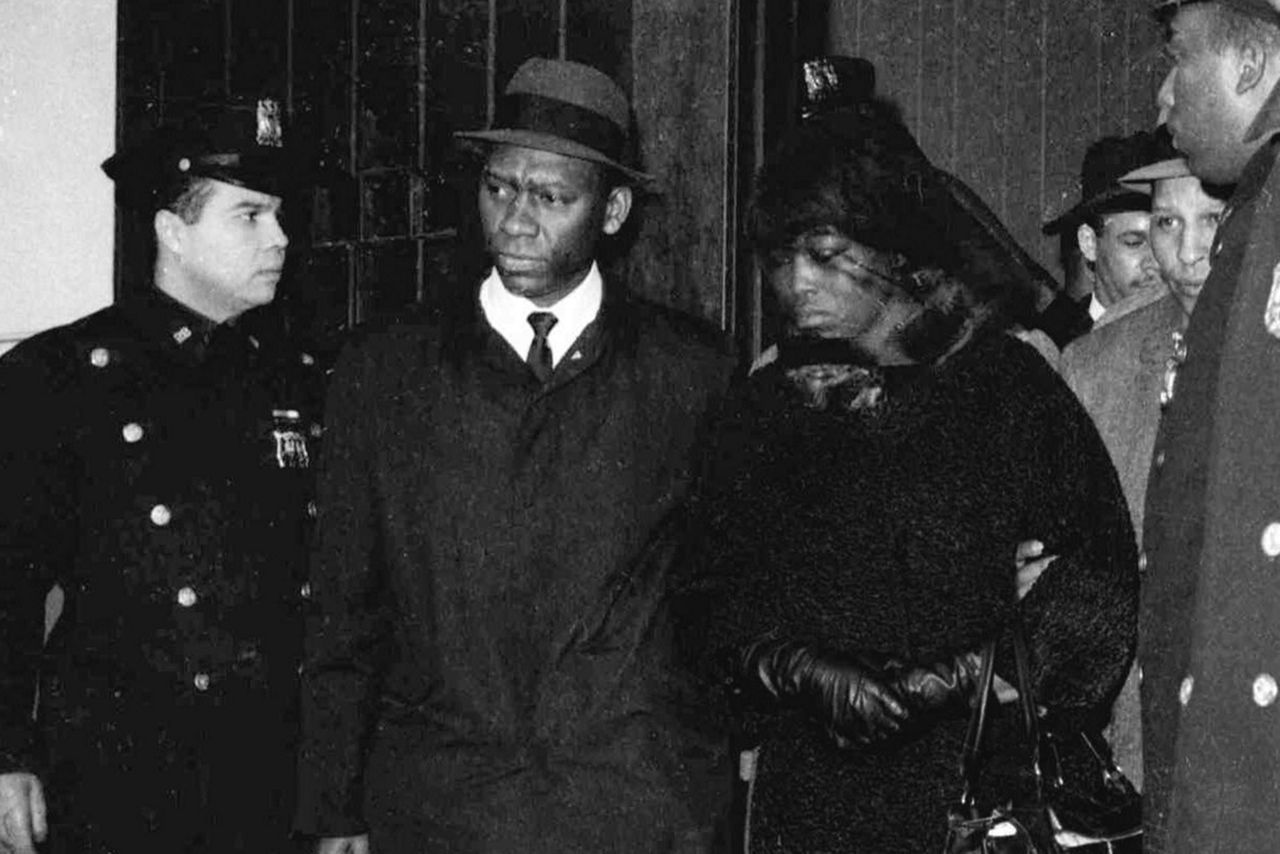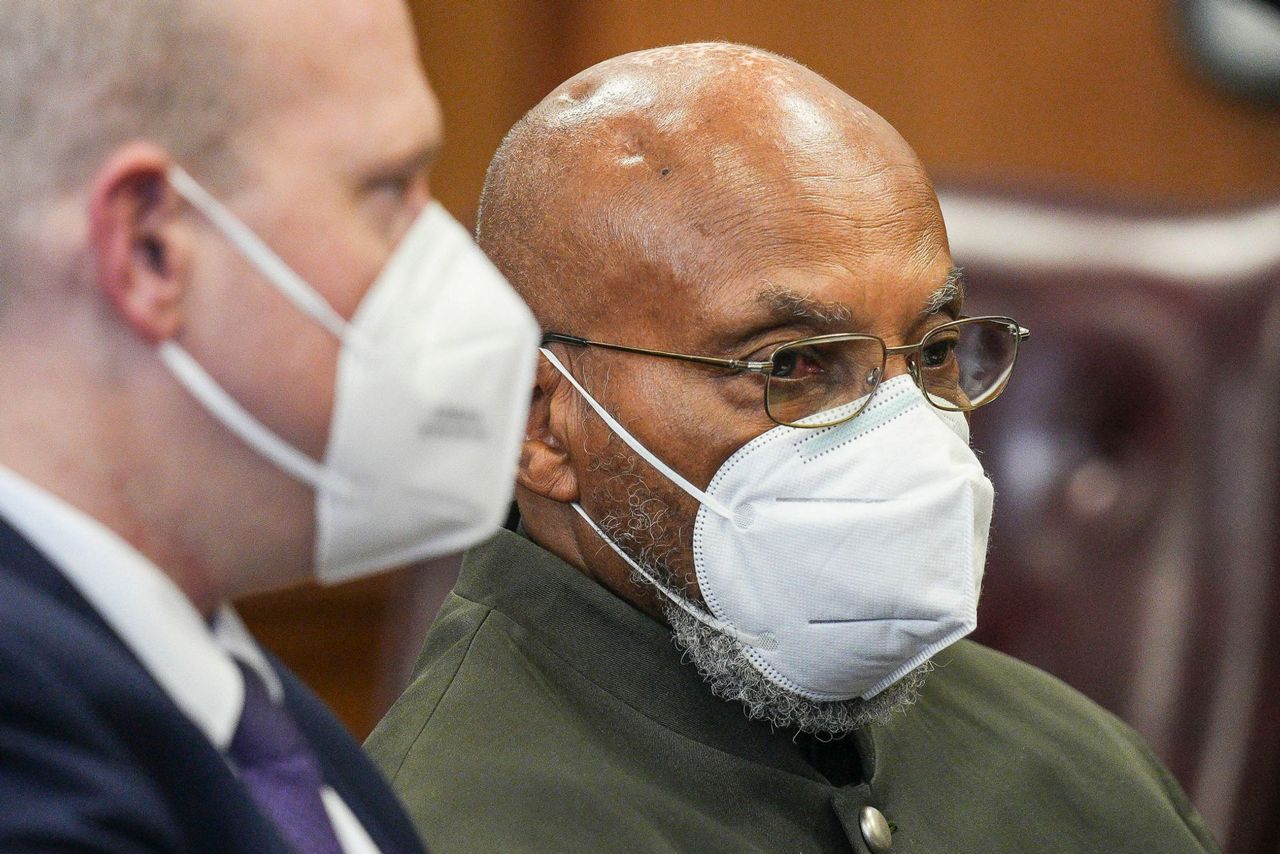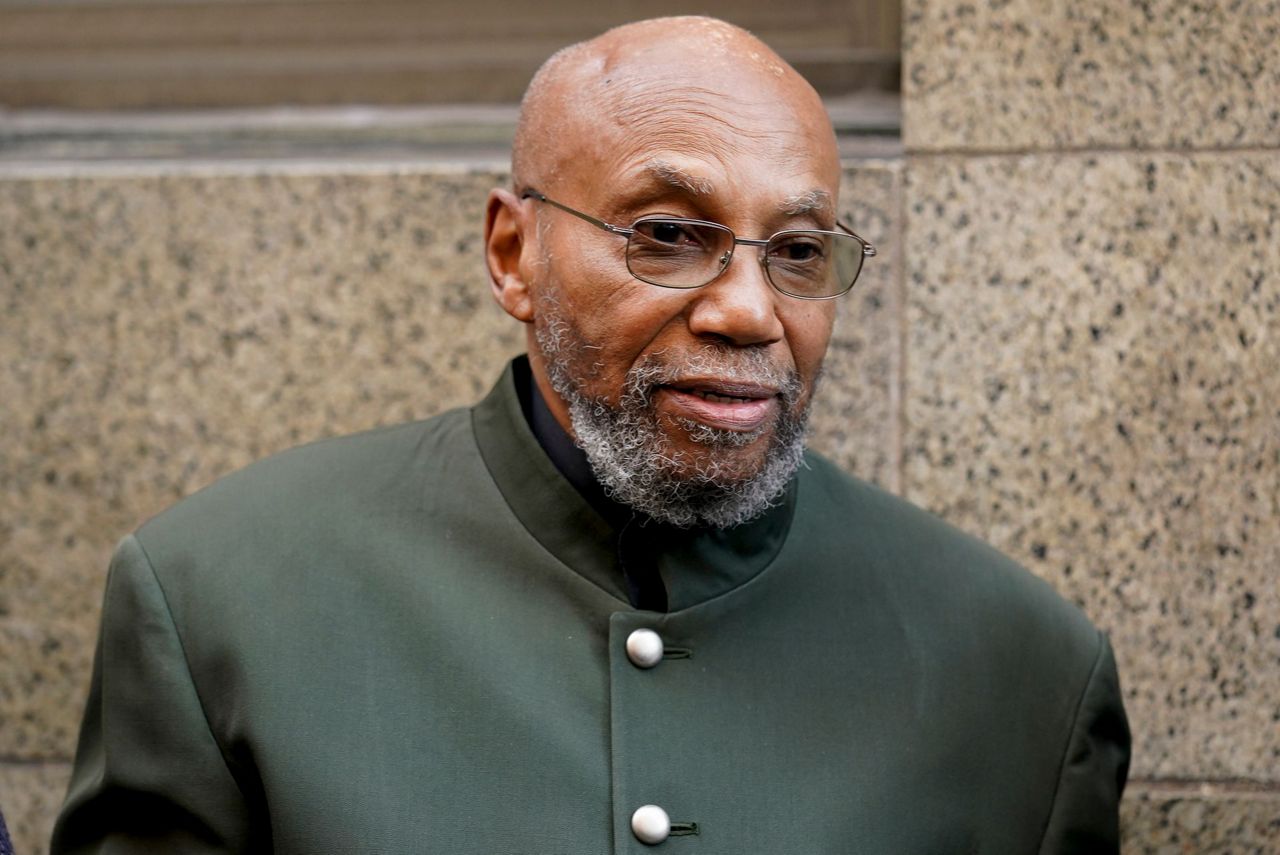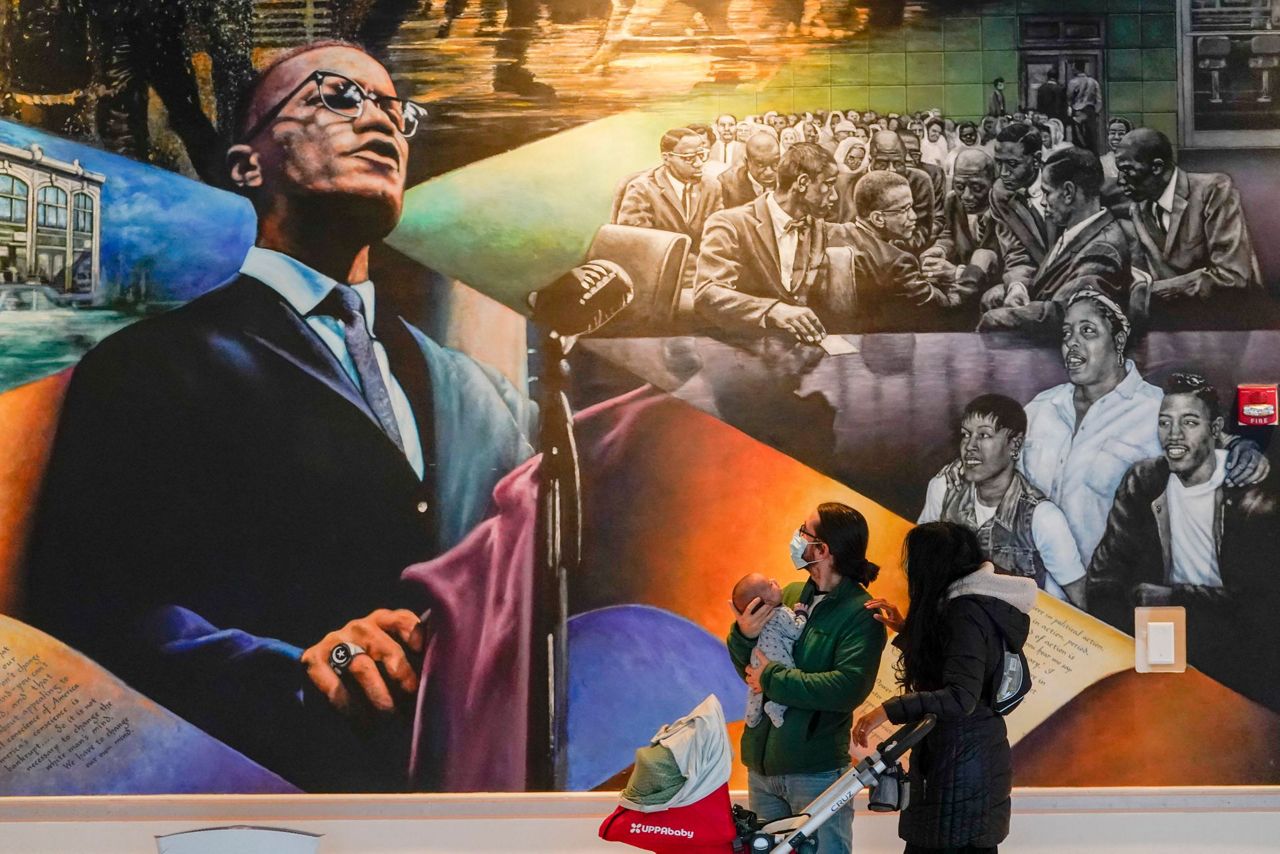NEW YORK (AP) — More than half a century after the assassination of Malcolm X, two of his convicted killers were exonerated Thursday after decades of doubt about who was responsible for the civil rights icon’s death.
Manhattan judge Ellen Biben dismissed the convictions of Muhammad Aziz and the late Khalil Islam, after prosecutors and the men’s lawyers said a renewed investigation found new evidence that undermined the case against the men and determined that authorities withheld some of what they knew.
“The event that has brought us to court today should never have occurred,” Aziz told the court. “I am an 83-year-old man who was victimized by the criminal justice system."
It pained Islam's sons, Ameen Johnson and Shahid Johnson, that their parents died before seeing the conviction reversed. Still, Ameen Johnson said his father would have been ecstatic to clear his name.
“His reputation meant a lot to him," the son said, and now “we don’t have to watch over our backs, worrying about any repercussions from anybody who thought that he might have been the one that killed Malcolm X.”
Aziz and Islam, who maintained their innocence from the start in the 1965 killing at Upper Manhattan's Audubon Ballroom, were paroled in the 1980s. Islam died in 2009.
“There can be no question that this is a case that cries out for fundamental justice,” Biben said.
Malcolm X gained national prominence as the voice of the Nation of Islam, exhorting Black people to claim their civil rights “by any means necessary.” His autobiography, written with Alex Haley, remains a classic work of modern American literature.
Near the end of Malcolm X’s life, he split with the Black Muslim organization and, after a trip to Mecca, started speaking about the potential for racial unity. It earned him the ire of some in the Nation of Islam, who saw him as a traitor.
He was shot to death while beginning a speech Feb. 21, 1965. He was 39.
Aziz and Islam, then known as Norman 3X Butler and Thomas 15X Johnson, and a third man were convicted of murder in March 1966. They were sentenced to life in prison.
The third man, Mujahid Abdul Halim — also known as Talmadge Hayer and Thomas Hagan — admitted to shooting Malcolm X but said neither Aziz nor Islam was involved. The two offered alibis, and no physical evidence linked them to the crime. The case hinged on eyewitnesses, although there were inconsistencies in their testimony.
Halim was paroled in 2010. Through a relative, he declined to comment Thursday. He identified some other men as accomplices, but no one else has ever been held accountable for the crime.
The re-investigation found that the FBI and police failed to turn over evidence that cast significant doubt on Islam and Aziz as suspects, according to a court filing.
The evidence included witnesses who couldn't identify Islam, implicated other suspects and groups, and described a shotgun-wielding assassin who didn't match Islam, the man prosecutors said bore that weapon. Investigators also found an FBI file on a man Halim identified after the trial as one of his accomplices and who fit some other leads.
And the records showed that the late FBI Director J. Edgar Hoover ordered agents to tell witnesses not to reveal that they were informants when talking with police and prosecutors, Manhattan District Attorney Cyrus Vance Jr. said Thursday.
New York Police Department records showed there were undercover officers in the ballroom at the time of the killing, a fact prosecutors apparently knew before trial but don't appear to have told defense lawyers, the court filing said. One undercover officer later testified at an unrelated trial that he'd been acting as part of Malcolm X's security team and had walloped Halim with a chair — a blow that didn't jibe with testimony from other witnesses at the alleged assassins' trial.
Meanwhile, a witness who came forward in recent years told investigators that he had spoken with Aziz shortly after the killing on Aziz's home phone. Aziz has said from the start that he was home that day with a leg injury.
“There is one ultimate conclusion: Mr. Aziz and Mr. Islam were wrongfully convicted of this crime,” and there is no prospect of retrying a 56-year-old case in which every eyewitness who testified has died and the physical evidence is gone, Vance said. He apologized for law enforcement's “serious, unacceptable violations of law and the public trust."
The FBI and NYPD had evidence of Aziz's and Islam's innocence within hours but ignored and suppressed it, said one of their attorneys, Deborah Francois, who worked on the case with civil rights lawyer David Shanies and the Innocence Project.
“The bigger questions of how or why this happened still remain unanswered,” Innocence Project co-founder Barry Scheck said.
The court filing recounts numerous tips and leads but doesn't draw any conclusions about who might have been involved, besides Halim.
The NYPD and the FBI said Wednesday that they had cooperated fully with the re-investigation. They declined to comment further.
NYPD Chief of Patrol Juanita Holmes said Thursday she felt for Malcolm X’s family and for Aziz and Islam “if we are responsible for withholding information.”
Attorneys, scholars, journalists and others have long raised questions about the convictions, and alternate theories and accusations have swirled around the case. After Netflix aired the documentary series “Who Killed Malcom X?” early last year, Vance’s office said it was taking a fresh look.
“It would be great if this murder was solved, but it’s not solved," said Tamara Payne, who co-authored the Pulitzer Prize-winning “The Dead are Arising: The Life of Malcolm X” with her late father, Les Payne.
"The damage is done, but my hope ... is that we learn from this,” Payne said.
___
Associated Press writers Ted Shaffrey, Bobby Caina Calvan, Deepti Hajela and Karen Matthews contributed to this report.
Copyright 2021 The Associated Press. All rights reserved. This material may not be published, broadcast, rewritten or redistributed without permission.



